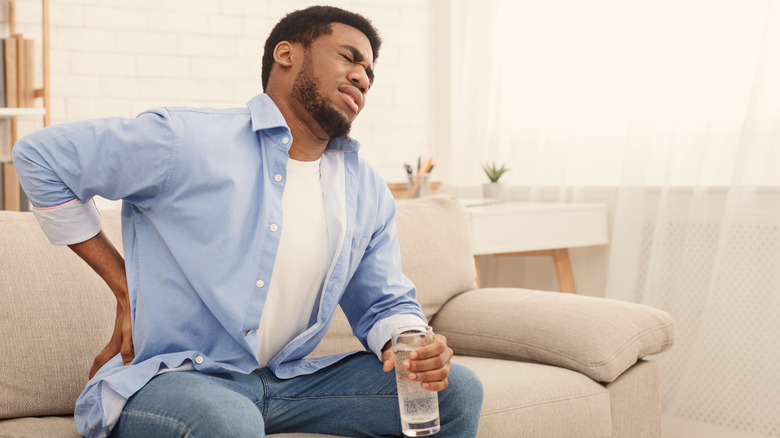A Nephrologist Debunks The Top 3 Myths About Kidney Stones
If your doctor decides you're in need of the expertise of a kidney specialist, they may refer you to a nephrologist. These physicians are able to diagnose and treat various kidney conditions, including urinary tract infections (UTIs), infections of the kidneys, and kidney stones, amongst others (via Cleveland Clinic).
The National Institute of Diabetes and Digestive and Kidney Diseases (NIDDK) reports that 11% of men and 6% of women will experience kidney stones one or more times over the course of their life. However, there are a lot of misconceptions surrounding the treatment and prevention of kidney stones. To help separate fact from fiction, Health Digest spoke with Marc Richards MD, nephrologist at Florida Kidney Physicians, who disproved the top three myths about kidney stones.
"Kidney stones only require surgical management," is the first myth Dr. Richards says he often hears. Identifying the second and third myths, he states, "Drinking water is the only thing we can do to prevent kidney stones, [and] all kidney stones can pass on their own." Dr. Richards then goes on to explain why these are false claims.
The facts about treating and preventing kidney stones
Addressing the first myth, Dr. Richards explains that kidney stones don't always require surgery. "Nephrologists can provide medical management for the care of kidney stones," he says. "Kidney stones that are smaller than 4 mm in diameter are likely to pass on their own, and if they are bigger, they will likely require urologic management, but there are some things we can do without surgery, [such as] medical expulsive therapy," Dr. Richards explains.
When it comes to myths around prevention, Dr. Richards states that drinking fluids isn't the only thing we can do to help keep kidney stones at bay. "In addition to staying hydrated, there are medications and diet changes we can recommend to reduce the risk of formation of kidney stones," he says.
Dr. Richards concludes the interview by pointing out which kinds of food items can be helpful in preventing kidney stones and which ones are best avoided. "Dietary changes, including [a] low salt diet, increase[d] hydration, and reduction of foods high in oxalate can help," he states. "Avoiding certain medication[s] can help as well. Other prescription medications can also be useful." Lastly, regular check-ups with one's doctor are another important part of maintaining kidney health that Dr. Richards emphasizes. "Routine care with a nephrologist is recommended," he says.


